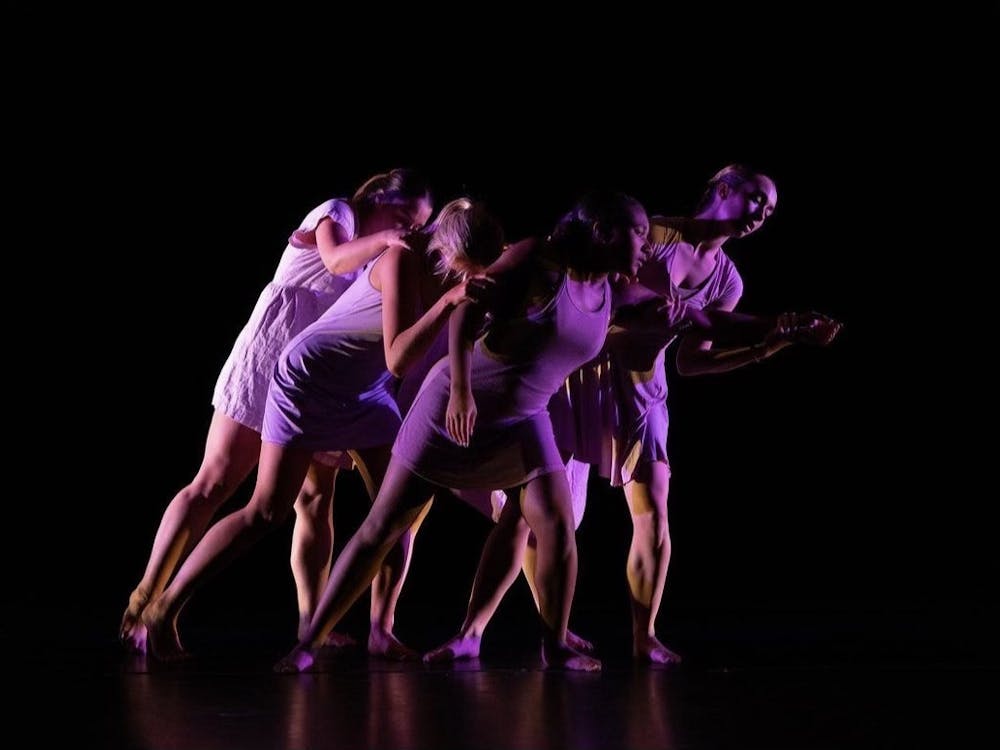An affected, sultry voice opens “Wild Honey,” as Gabriella Applebaum (Rusty Schwimmer) answers her phone sex line. On the phone — she is a blonde with 34 DDs. Off the phone — she is a redhead sniffing a sock. On the phone — she is stripping for a bath. Off the phone — she is cursing the man repossessing her car. On the phone — she is living with another woman. Off the phone — she is moving back in with her mother.
These introductory scenes are quick, bright and hysterical, but the film picks up speed when Gabby gets her first regular caller, Martin (Timothy Omundson) and whisks away to Los Angeles to meet him. Schwimmer is stellar in the role — her eye-rolls and half-smiles turn Gabby into a kind of everywoman — and writer and director Francis Stokes’ best move is making her character more than some made-over lovestruck girl.
“Wild Honey” instead becomes a romantic comedy which should not work but does. The incongruity of the characters — not only within their own lives but with each other — is a fun and light spin on the boy-meets-girl drama, making the plot inviting for a far broader audience. Gabby and Martin have verve and more than just sex appeal, even though the phone sex premise may invite superficiality.
The film resists the temptation, however, to rely on such built-in lewdity. Though the Gabby-Martin romance enjoys its drug paraphernalia, including “the s—t Snoop Dogg smokes,” it does so to poke fun at the extreme hipster L.A. lifestyle. Instead of relying upon graphic descriptions or depictions, the movie hinges on chattiness — making it more than just a cheap-shot comedy.
The primary concern of “Wild Honey” is conversation, and Gabby and Martin’s time together — both in-person and over the phone — centers around their shared feelings of being unheard. The audience feels invited to join in — to hear and be heard — but this connection fizzles when, in an unsurprising twist, Gabby discovers Martin also has an alter ego. Her subsequent devastation is disappointing for such a defiant character.
In a discussion with Stokes and producer Bekah Sturm after the film, an audience member voiced her approval that though Gabby’s sister worked in fashion, she never gave Gabby a makeover — a clear rejection of romantic comedy convention. The audience member and Stokes agreed this would have been untrue to Gabby’s character. Gabby is unapologetic for who she is, but only to a visual extent and not to an internal one. The flimsy lies of another can still cause her to question her worth, which gives the impression that Gabby is almost more disappointed by the inability of Martin’s professional success to lift her into her own than by his dishonesty.
It is a thorny scene because — of course — Gabby becomes upset. But to what extent? The two spend a weekend together — not a lifetime — and the true loss is not even Martin himself but their conversations, along with Gabby’s ability to feel heard and unjudged. The side effect of casting an everywoman as the protagonist is that the audience becomes her, and when Gabby is down, so is the audience. “Wild Honey” tries to patch itself up with sisterhood, but the inside jokes still linger in “sad woman” territory, demonstrating partial allegiance to romantic-comedy tropes.
That is not to say “Wild Honey” flames out by its end, only that the latter half of the film cannot match Schwimmer’s opening performance. The Gabby who leaves Martin the voicemail, “I’ve decided to live dangerously, so call me whenever you get a chance,” is the one whose risks compel the audience, and it is not until Gabby and Martin are on the phone once more that her voice recovers some of its lost swagger.
Gabby’s final quip, “What are you looking for?” — the catch-all question for her work calls — marks a recovery of her trademark wryness. She reasserts “Wild Honey” as a deft comedy, and though Stokes stated that little of the film was improvised, Schwimmer remains largely responsible for the film’s success.





